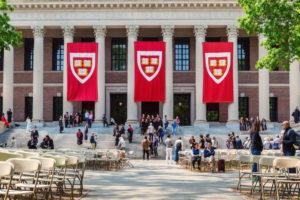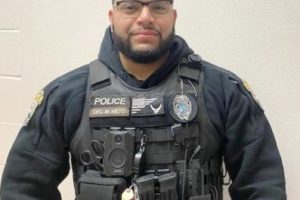 In the wake of the recently aired documentary Black in America, it’s interesting to see how Caribbean societies have dealt with skin colour issues, especially Haiti and Jamaica. Here is a long excerpt of Haitian-American filmmaker Rachelle Salnave documentary “La Belle Vie”.
In the wake of the recently aired documentary Black in America, it’s interesting to see how Caribbean societies have dealt with skin colour issues, especially Haiti and Jamaica. Here is a long excerpt of Haitian-American filmmaker Rachelle Salnave documentary “La Belle Vie”.
La Belle Vie takes a look into a filmmaker’s journey to discover her Haitian roots by examining the complexities of the Haitian society but also chronicles her voyage to find hope in this nation on the brink of a new Haiti.
La Belle Vie: The Good Life is a story about a Haitian-American filmmaker’s journey to discover her Haitian roots by examining the complexities of the Haitian society as it pertains to the overall political and economic dichotomy in Haiti. Using her own personal family stories interconnected with capturing the voices of Haitians and experts overall, this film chronologically uncovers the rational behind its social class system but also how it has affected the Haitian American migration experience as well. With the proliferation of political turmoil, poverty, and now an Earthquake shattered nation, La Belle Vie: The Good
With the proliferation of political turmoil, poverty, and now an Earthquake shattered nation, La Belle Vie: The Good Life in the end beckons all to lay down their arms, be it the tangible weapons of death and pain or the psychological and spiritual tools of division and prejudice, and work as one to rebuild and prosper in the name of a new and stronger Haiti. This film in the end, invokes the question whether or not its tragic event will shift the consciousness of all Haitians (living in Haiti or abroad) by motivating them to unite to build a new Haiti.
La Belle Vie: The Good Life – Official Trailer from Rachelle Salnave on Vimeo.
 Haitian Director Rachelle Salnave
Haitian Director Rachelle Salnave
I was born in Harlem to Haitian parents. They both left Haiti many years ago due in part to the political unrest during the time of President Francois Duvalier era. They assimilated to American life and found a circle of family and friend’s that has kept them connected to their Haitian Heritage. As a kid, I travelled to Haiti a few times for vacation and special events. I always loved the time that I spent there. It was truly “La Belle Vie,” a beautiful life.
As I travel back to Haiti now to understand my roots as an adult, I discovered that Haitian’s I talked to on the street called me a “Jaspora” or “Blan.” For the most part, I was considered a “Blan” because my creole is very bad and just by looking at me they said they could tell I am a “foreigner.” This pained me for some days because I could not understand why my people thought of me as an “outsider” especially knowing how much I loved my country. I also certainly did not understand why they chose the word “Blan” (white) as a term to call someone who grew up in Harlem. I also never liked being called “Jaspora” because I always thought it implied another classification, another division that kept people thinking that people of Haitian descent living abroad were somehow a step above those living in Haiti. After learning that the word “Blan” has nothing to do with race, I began to really analyze . . . how am I really perceived when I go to Haiti?
From the perspective of the people who live on the streets, people do have lots of hope in Haitian’s abroad. They are waiting for my generation to invest in their country. Implement our skillsets on every level to assist in rebuilding. When I talk to the Haitian’s who do run companies and have great jobs in Haiti, they too await for the people abroad to partner with the country to make their workload a little lighter.
Haiti is a country where I still have the best time. I love to listen to live music, enjoy food with family and of course experience the beach life but I can no longer close my eyes to the tremendous work that needs to be done. If contributing in a small way will help a home be built, a community be fed or help a nation be healed through film maybe classifications for Haitian’s living abroad will end. We are one!
– source





























